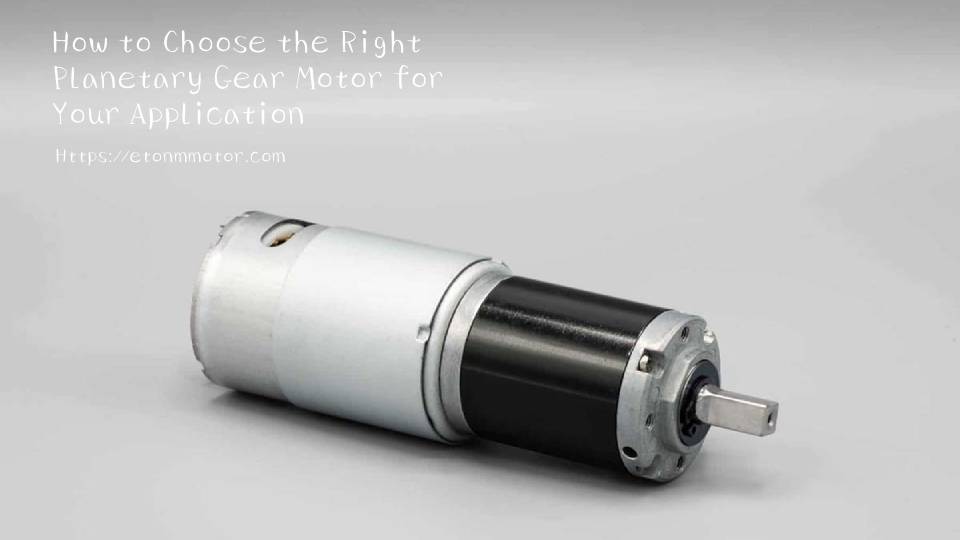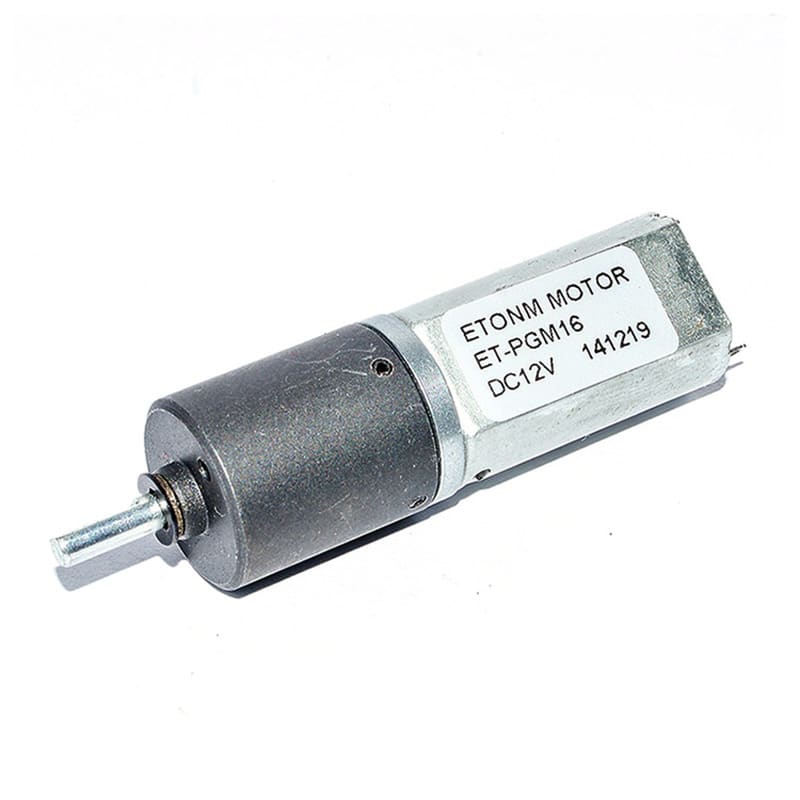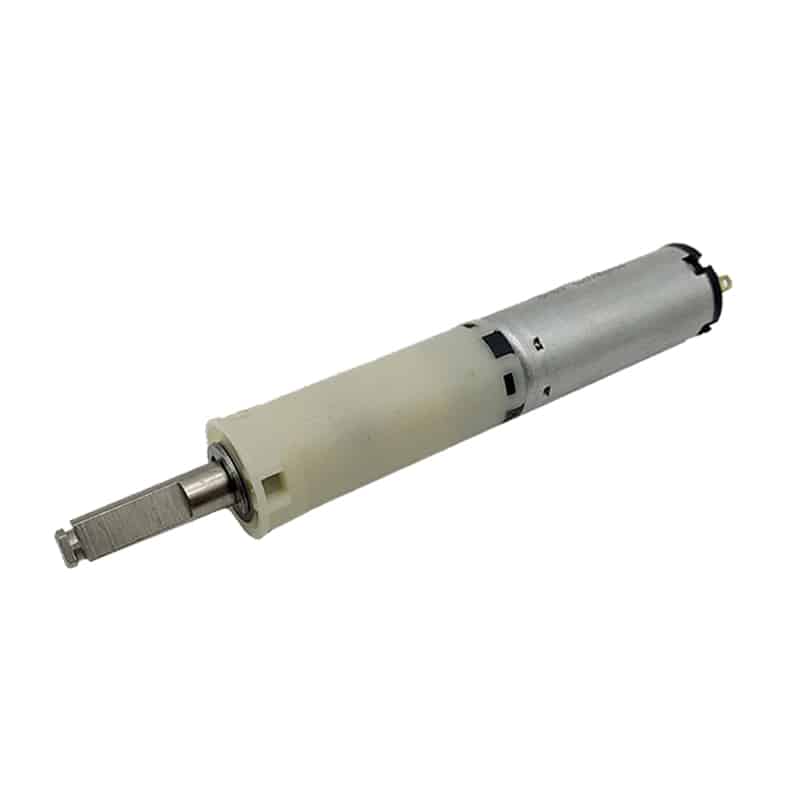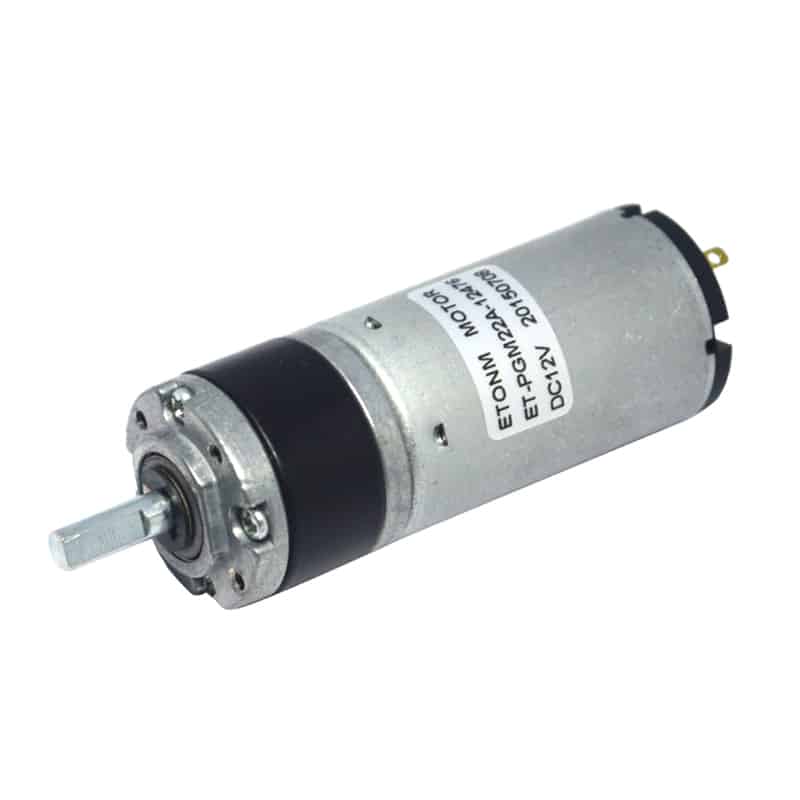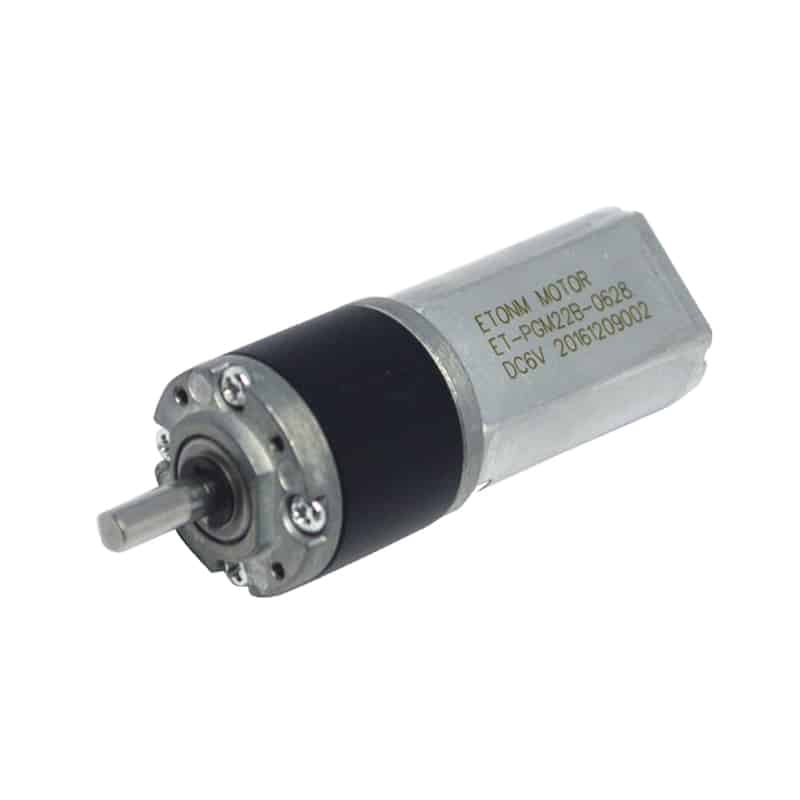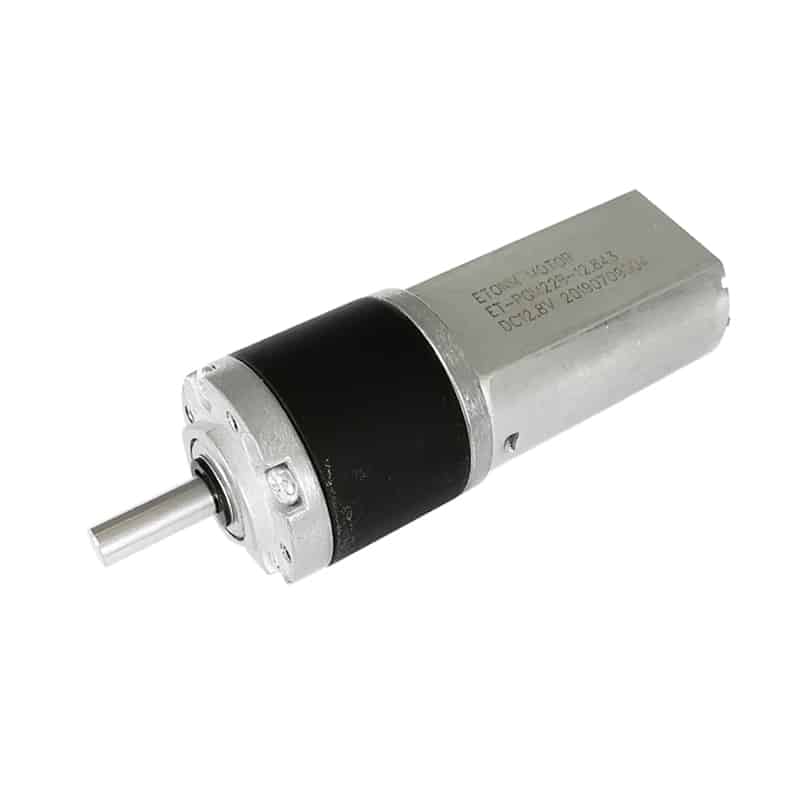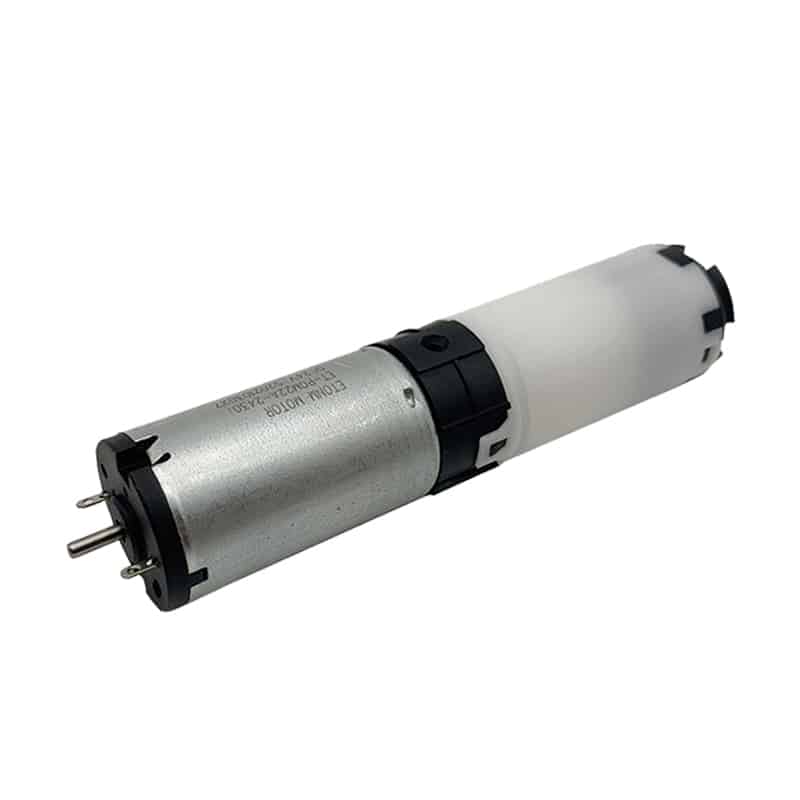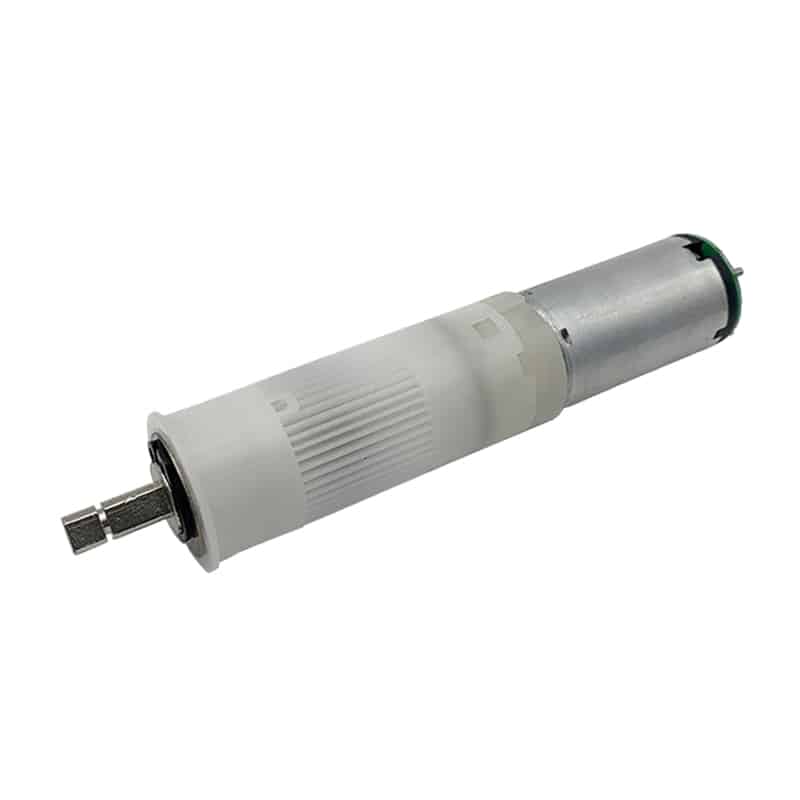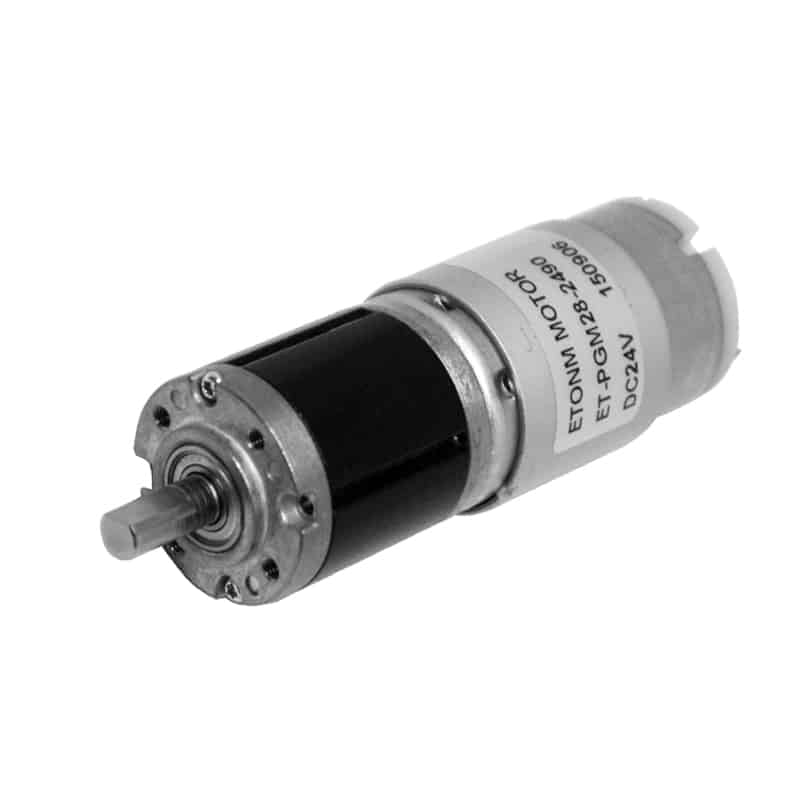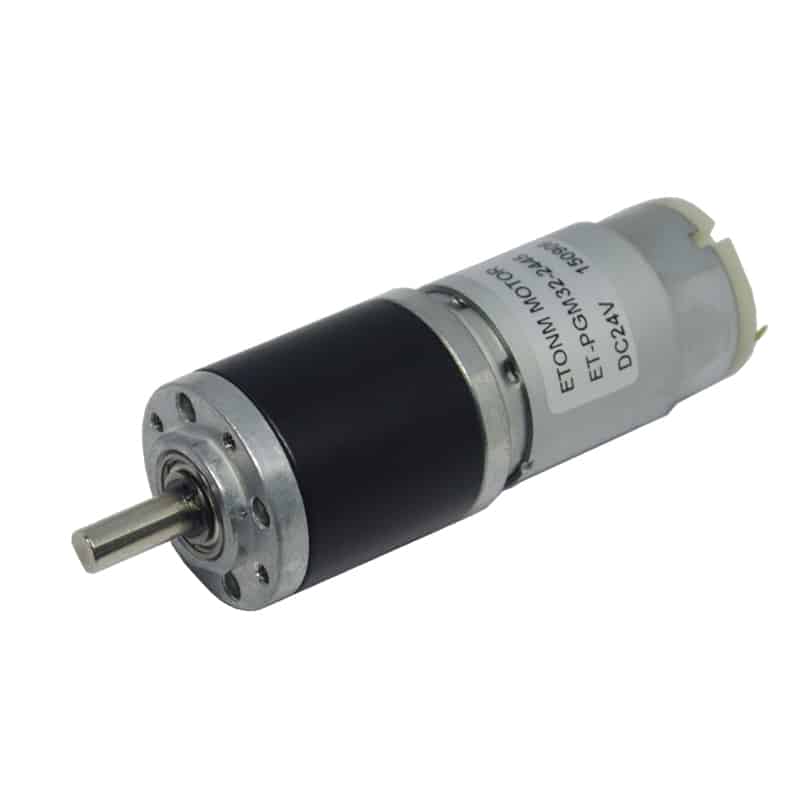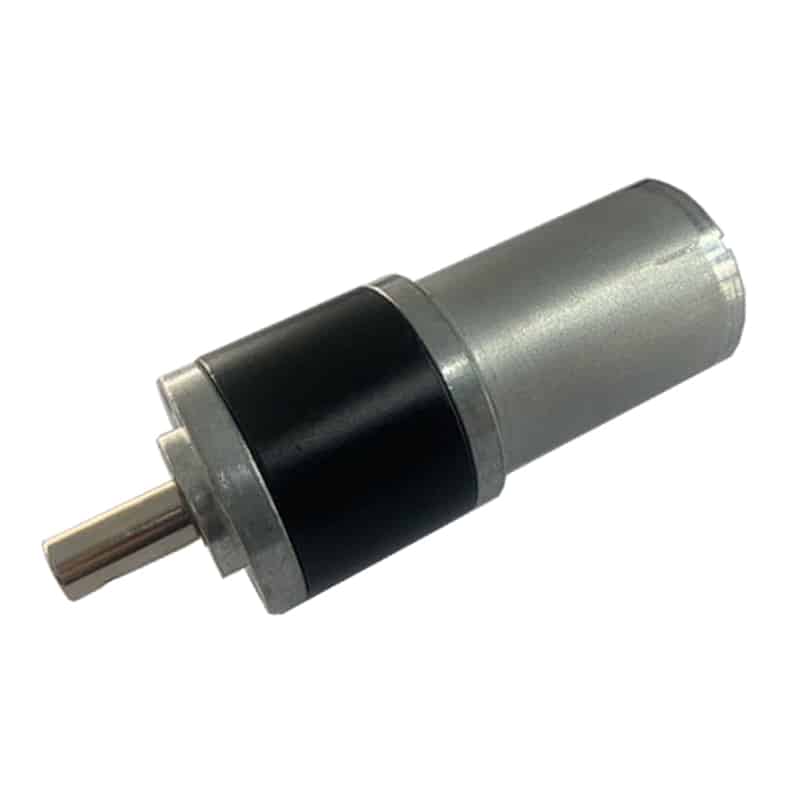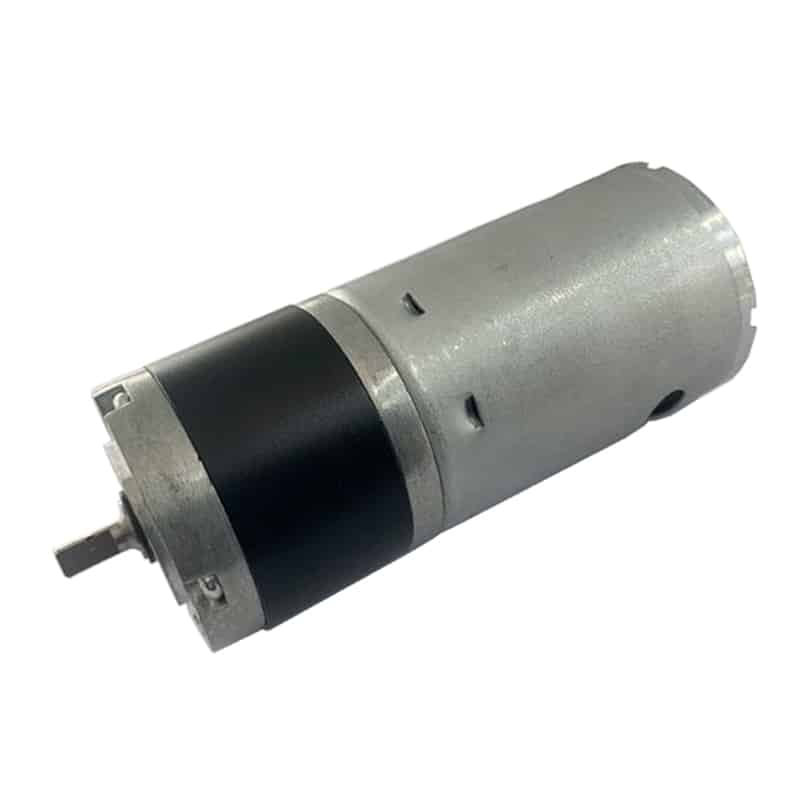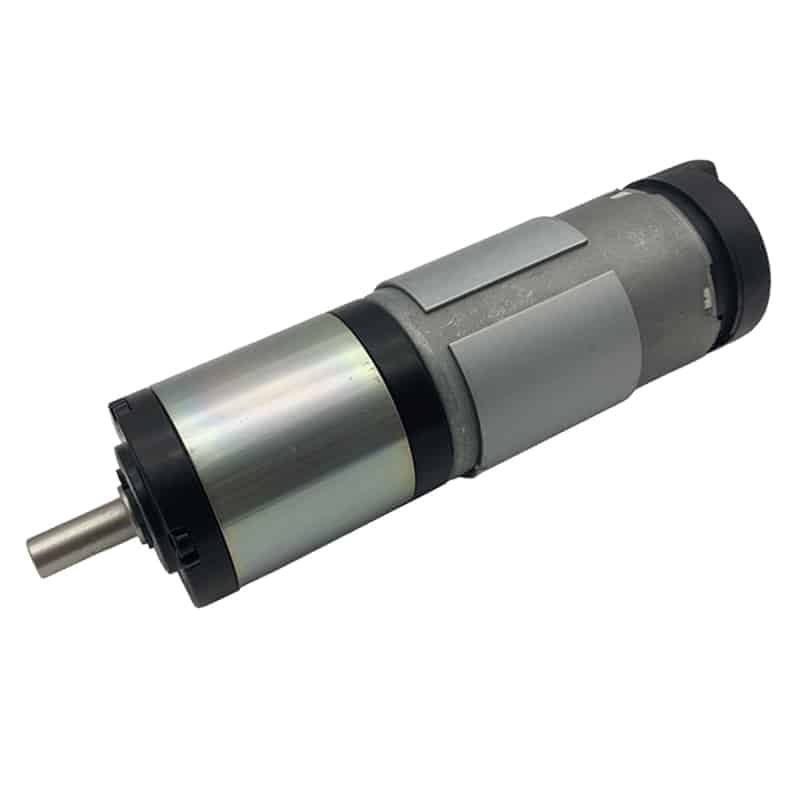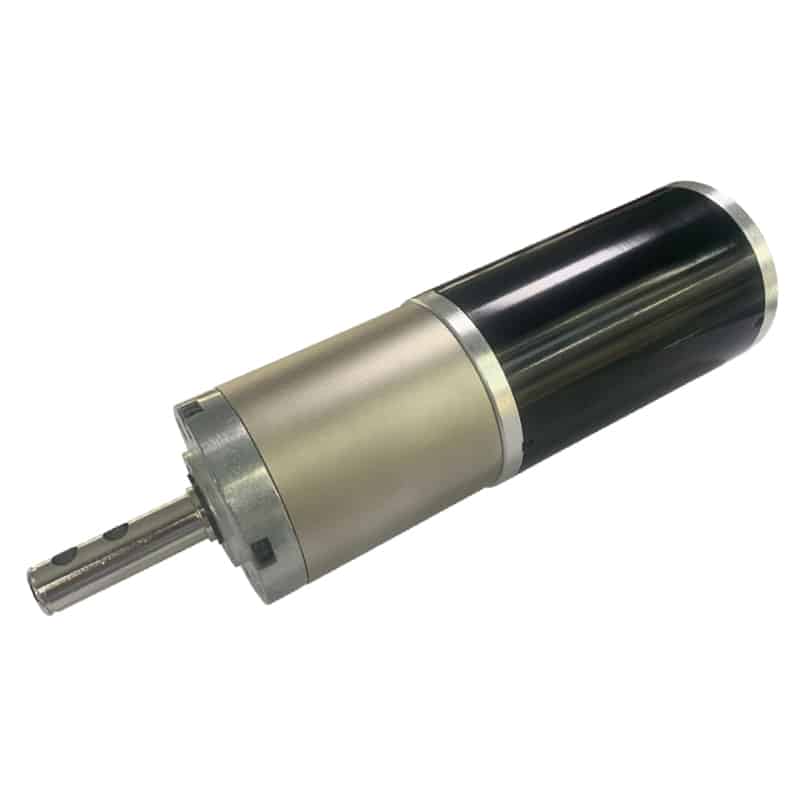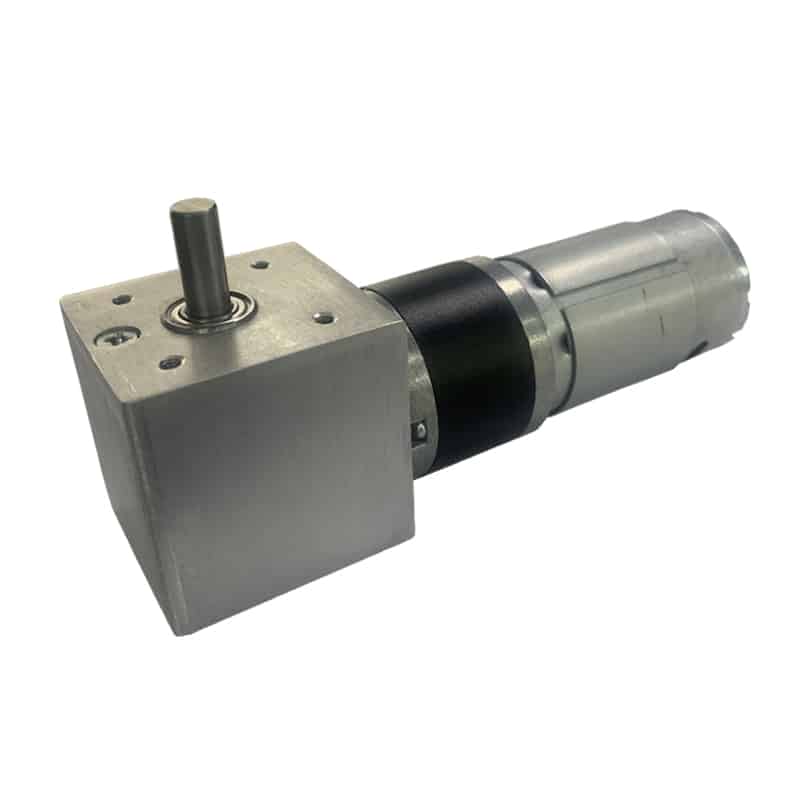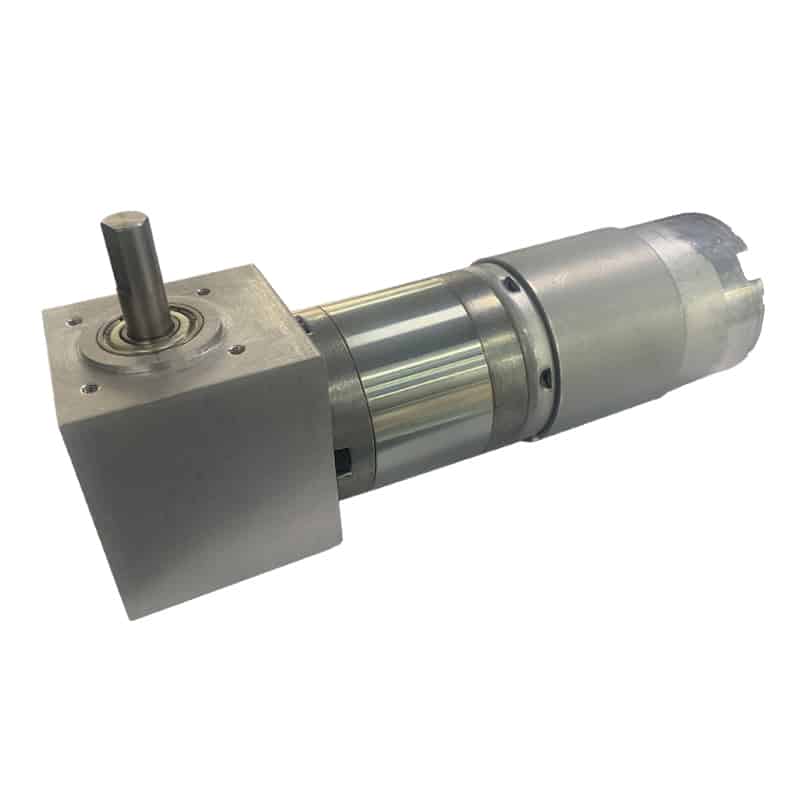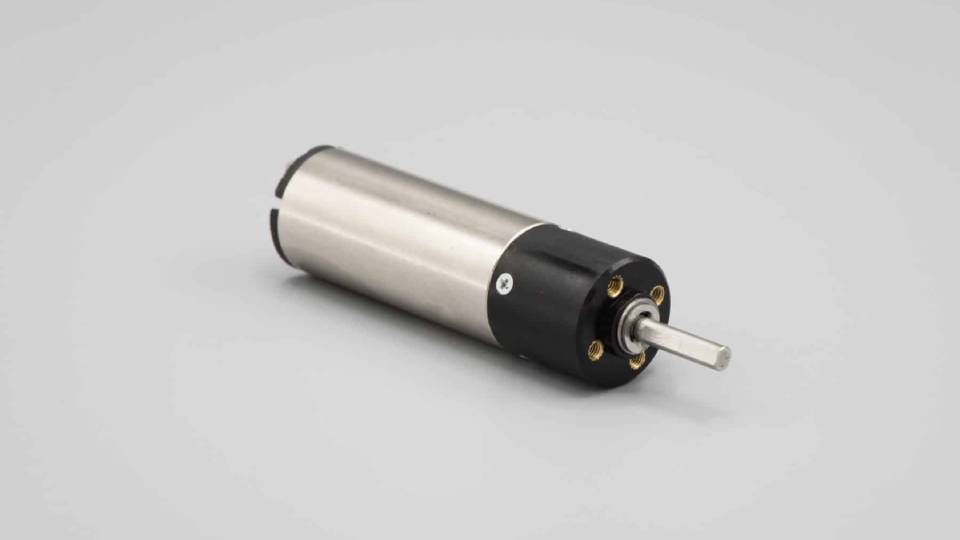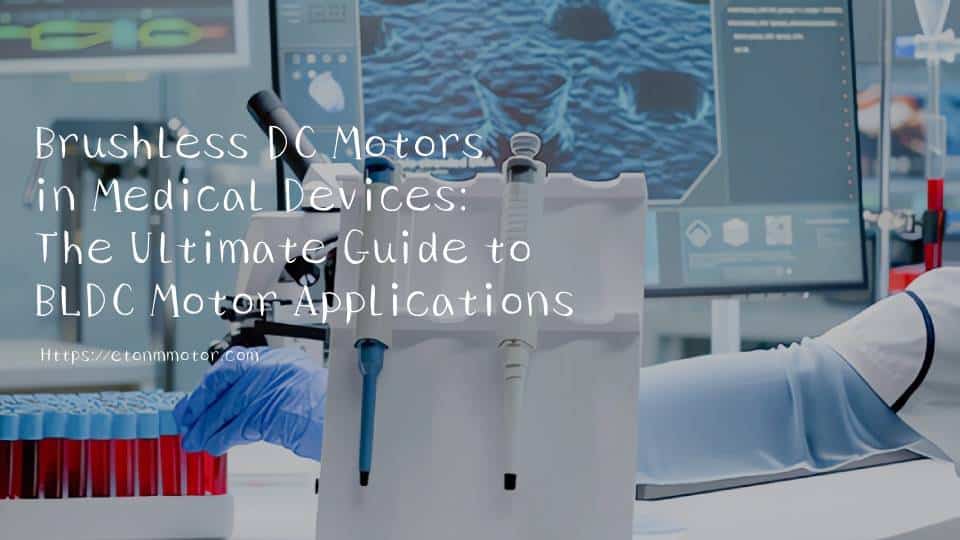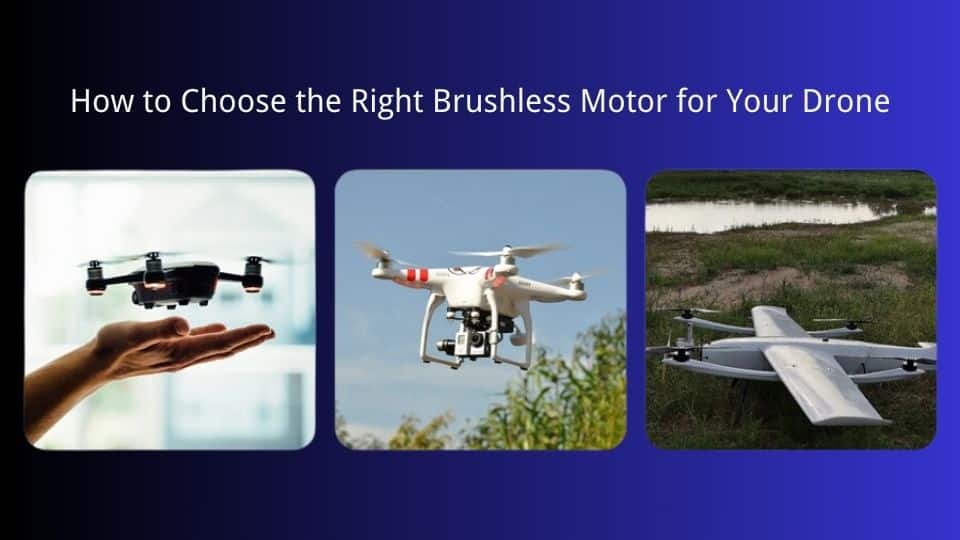Choosing the right planetary gear motor can be challenging. This guide covers key factors like torque, speed, and size to help you make the best decision for your application.
Table of Contents
Introduction
When it comes to powering precision-driven applications, planetary gear motors are often the unsung heroes. These compact yet powerful motors are the backbone of countless devices, from your smart home gadgets to advanced medical equipment. But here’s the catch: not all planetary gear motors are created equal. Choosing the right one can feel like navigating a maze, especially if you’re not sure what to look for.
Whether you’re designing a robot, optimizing a vending machine, or developing a cutting-edge medical device, the wrong motor can lead to inefficiency, increased costs, or even system failure. That’s why understanding how to select the perfect planetary gear motor is crucial. In this guide, we’ll break down everything you need to know—from torque and speed to size and durability—so you can make an informed decision tailored to your specific needs.
By the end of this article, you’ll not only know what makes a great planetary gear motor but also why partnering with the right planetary gear motor manufacturers can make all the difference. Let’s dive in!
What is a Planetary Gear Motor?
If you’re new to the world of motors, you might be wondering, what exactly is a planetary gear motor? Simply put, it’s a type of gear motor that uses a unique arrangement of gears to deliver high torque and efficiency in a compact design. The name “planetary” comes from its gear system, which resembles a solar system: a central “sun” gear is surrounded by multiple “planet” gears, all encased within an outer “ring” gear. This setup allows the motor to distribute load evenly, making it incredibly durable and efficient.
Compared to other gear motors like worm gear or spur gear motors, planetary gear motors stand out for their ability to handle heavy loads while maintaining a small footprint. This makes them ideal for applications where space is limited but performance can’t be compromised. For example, in robotics or medical devices, where precision and reliability are non-negotiable, planetary gear motors are often the go-to choice.
But it’s not just about size and power. Planetary gear motors are also known for their smooth operation and low noise levels, which is why you’ll find them in smart home devices like automatic blinds or sanitary dispensers where quiet performance matters. Whether you’re working on an industrial machine or a consumer product, understanding the basics of how these motors work is the first step toward choosing the right one for your needs.
So, now that you know what a planetary gear motor is, let’s explore the key factors you should consider when selecting one for your application.
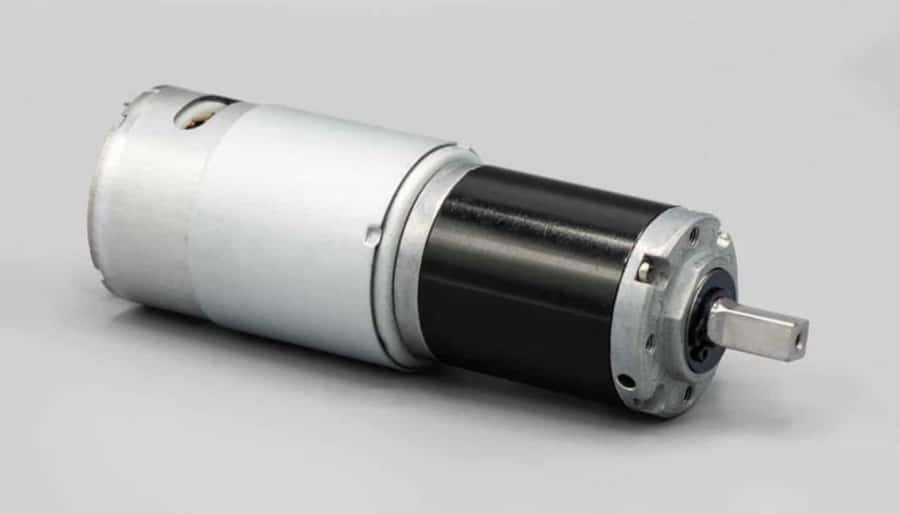
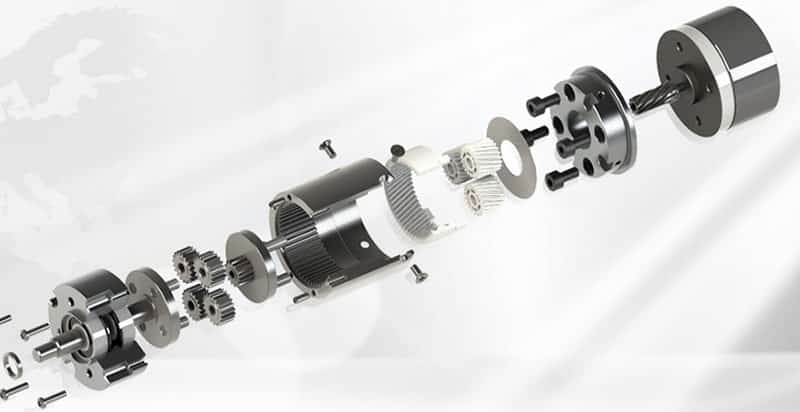
Key Factors to Consider When Choosing a Planetary Gear Motor
Selecting the right planetary gear motor isn’t just about picking the first option that fits your budget. It’s about understanding your application’s specific needs and matching them to the motor’s capabilities. Here are the most critical factors to consider:
1. Torque Requirements
Torque is the rotational force a motor can produce, and it’s one of the most important factors in choosing a planetary gear motor. If your motor doesn’t provide enough torque, it won’t be able to handle the load, leading to poor performance or even failure.
- How to Calculate Torque Needs: Start by determining the load your application requires. For example, if you’re designing a robotic arm, calculate the weight it needs to lift and the distance from the pivot point. Use the formula:
Torque = Force × Distance.
If the arm needs to lift 5 kg at a distance of 0.1 meters, the required torque is 0.5 Nm. - Real-World Example: In electric valves, precise torque control ensures smooth opening and closing, preventing leaks or damage. A motor with insufficient torque might struggle to operate the valve under high pressure.
Always choose a motor with a torque rating slightly higher than your calculated requirement to account for unexpected loads or friction.
2. Speed and Gear Ratio
Speed and gear ratio go hand in hand when it comes to planetary gear motors. The gear ratio determines how much the motor’s output speed is reduced and its torque increased.
- Understanding Gear Ratio: A higher gear ratio means slower output speed but greater torque. For example, a gear ratio of 10:1 reduces the motor’s speed by a factor of 10 while multiplying its torque by 10.
- Balancing Speed and Torque: If your application requires high speed but low torque (e.g., a vending machine dispensing lightweight items), opt for a lower gear ratio. Conversely, for applications like security cameras that need precise, slow movements, a higher gear ratio is ideal.
- Pro Tip: Always check the motor’s datasheet for its rated speed and ensure it aligns with your application’s needs.
3. Size and Compactness
One of the biggest advantages of planetary gear motors is their compact design. However, “small” doesn’t always mean “right.”
- Why Size Matters: In applications like medical care devices (e.g., portable insulin pumps), space is often limited. A motor that’s too large won’t fit, while one that’s too small might not deliver the required performance.
- Measuring for Fit: Before purchasing, measure the available space in your device, including height, width, and depth. Don’t forget to account for mounting points and wiring.
- Custom Solutions: If standard sizes don’t work, consider working with planetary gear motor manufacturers like Eton Motor, who offer custom designs tailored to your specifications.
4. Durability and Material
The materials used in a planetary gear motor directly impact its lifespan and performance.
- Common Materials: High-quality motors often use hardened steel for gears and aluminum or stainless steel for housings. These materials resist wear and corrosion, ensuring long-term reliability.
- Application-Specific Choices: For example, in sanitary dispensers, where motors are exposed to moisture and cleaning chemicals, stainless steel housings are essential to prevent rust.
- Testing for Durability: Look for motors that have undergone rigorous testing, such as load testing and thermal cycling, to ensure they can withstand real-world conditions.
5. Noise and Efficiency
Noise levels and energy efficiency are often overlooked but can make a big difference in certain applications.
- Why Noise Matters: In smart home devices like automatic curtains or security systems, a noisy motor can be disruptive. Planetary gear motors are inherently quieter than other types due to their even load distribution.
- Energy Efficiency: Efficient motors not only save power but also generate less heat, which can extend the motor’s lifespan. Look for motors with high efficiency ratings, especially if they’ll be running continuously.
- Real-World Example: In vending machines, a quiet and efficient motor ensures smooth operation without annoying customers or driving up energy costs.
By carefully evaluating these factors—torque, speed, size, durability, and noise—you can narrow down your options and choose a planetary gear motor that perfectly matches your application’s needs. In the next section, we’ll explore where these motors are used and why they’re so versatile.
Applications of Planetary Gear Motors
Planetary gear motors are incredibly versatile, thanks to their compact size, high torque, and efficient performance. They’re used in a wide range of industries, often in applications where precision, reliability, and space-saving design are critical. Let’s take a closer look at some of the most common uses:
1. Smart Home Devices
In the world of smart home technology, planetary gear motors are the silent workhorses behind many automated systems.
Examples:
Automatic Blinds and Curtains: These motors provide the precise torque and quiet operation needed to open and close window coverings smoothly.
Smart Locks: Planetary gear motors ensure reliable locking and unlocking mechanisms, even under heavy use.
Robotic Vacuum Cleaners: The motors drive the wheels and brushes, offering the right balance of speed and torque for efficient cleaning.
Why They’re Ideal: Their compact size fits seamlessly into small devices, while their low noise levels keep your home peaceful.
2. Medical Care Equipment
The medical industry demands precision and reliability, and planetary gear motors deliver on both fronts.
Examples:
Insulin Pumps: These devices require precise motor control to deliver accurate doses of medication.
Hospital Beds: Motors adjust bed height and positioning smoothly and quietly, ensuring patient comfort.
Surgical Robots: Planetary gear motors provide the high torque and precision needed for delicate procedures.
Why They’re Ideal: Their durability and ability to operate in tight spaces make them perfect for life-saving equipment.
3. Robotics
From industrial robots to consumer gadgets, planetary gear motors are a staple in robotics.
Examples:
Industrial Robotic Arms: These motors handle heavy loads with precision, making them essential for manufacturing and assembly lines.
Educational Robots: Compact and efficient motors are used in STEM kits to teach students about robotics.
Drones: Planetary gear motors drive camera gimbals, ensuring smooth and stable footage.
Why They’re Ideal: Their high torque and compact design allow robots to perform complex tasks without taking up too much space.
4. Electric Valves and Meters
In systems that control fluid or gas flow, planetary gear motors provide the precision and reliability needed for consistent operation.
Examples:
Water Meters: Motors ensure accurate measurement and control of water flow.
HVAC Systems: They regulate valves to maintain optimal temperature and airflow.
Industrial Valves: Planetary gear motors handle high-pressure environments, ensuring smooth operation.
Why They’re Ideal: Their ability to deliver consistent torque and withstand harsh conditions makes them a top choice for these applications.
5. Vending Machines
Vending machines rely on planetary gear motors to deliver products quickly and reliably.
Examples:
Snack and Beverage Machines: Motors drive the mechanisms that dispense items, ensuring smooth operation.
Ticket Vending Machines: They provide the precision needed to handle tickets and change.
Why They’re Ideal: Their durability and efficiency keep machines running smoothly, even with frequent use.
6. Security Systems
In security applications, reliability is non-negotiable, and planetary gear motors deliver just that.
Examples:
Surveillance Cameras: Motors enable smooth pan, tilt, and zoom functions for optimal coverage.
Automatic Gates: They provide the torque needed to open and close heavy gates reliably.
Access Control Systems: Motors ensure secure and precise operation of barriers and turnstiles.
Why They’re Ideal: Their quiet operation and ability to handle heavy loads make them perfect for security systems.
7. Sanitary Dispensers
In public and commercial spaces, planetary gear motors power devices that promote hygiene and convenience.
Examples:
Soap and Sanitizer Dispensers: Motors ensure consistent and reliable dispensing.
Paper Towel Dispensers: They provide the torque needed to handle thick rolls of paper.
Why They’re Ideal: Their compact design and durability make them ideal for high-traffic areas.
Why Planetary Gear Motors Shine in These Applications
The common thread across all these industries is the need for motors that are small, powerful, and reliable. Planetary gear motors excel in these areas, making them a go-to solution for engineers and designers worldwide. Whether you’re building a cutting-edge robot or a simple vending machine, these motors offer the performance and versatility you need.
In the next section, we’ll discuss why choosing the right planetary gear motor manufacturer is just as important as selecting the motor itself. Stay tuned!

Why Choose Eton Motor as Your Planetary Gear Motor Manufacturer?
When it comes to selecting a planetary gear motor, the manufacturer you choose can make all the difference. Not all motors are created equal, and partnering with a reliable, experienced manufacturer ensures you get a product that meets your exact needs. Here’s why Eton Motor stands out as a trusted partner for businesses across industries:
1. Expertise in Custom Solutions
At Eton Motor, we understand that every application is unique. That’s why we specialize in custom planetary gear motors tailored to your specific requirements.
Tailored Designs: Whether you need a motor with a specific torque rating, a unique size, or a special gear ratio, we can design and manufacture it for you.
Real-World Example: We recently developed a compact planetary gear motor for a client in the medical care industry. The motor had to fit into a portable insulin pump while delivering precise torque for accurate dosing. Our team delivered a solution that exceeded expectations.
2. High-Quality Materials and Manufacturing
Quality is at the heart of everything we do. We use only the best materials and adhere to strict manufacturing standards to ensure our motors are durable, reliable, and efficient.
Materials: Our motors feature hardened steel gears for strength and longevity, as well as corrosion-resistant housings for use in harsh environments.
Quality Control: Every motor undergoes rigorous testing, including load testing, thermal cycling, and noise level checks, to ensure it meets our high standards.
3. Wide Range of Applications
With years of experience serving industries like smart home, robotics, medical care, and security, we understand the unique challenges each sector faces.
Industry-Specific Solutions: Whether you’re designing a robotic arm, a vending machine, or an electric valve, we have the expertise to provide a motor that fits your needs.
Proven Track Record: Our motors are trusted by leading companies in industries ranging from consumer electronics to industrial automation.
4. Competitive Pricing and Fast Delivery
We believe high-quality motors shouldn’t come with a high price tag or long lead times.
Cost-Effective Solutions: By optimizing our manufacturing processes, we offer competitive pricing without compromising on quality.
Quick Turnaround: Our efficient production and logistics ensure you get your motors on time, every time.
5. Exceptional Customer Support
Choosing the right motor is just the beginning. We’re here to support you every step of the way, from initial consultation to after-sales service.
Technical Expertise: Our team of engineers is available to help you select the right motor for your application and troubleshoot any issues.
Global Reach: No matter where you’re located, we’re just a phone call or email away.
6. Commitment to Innovation
The world of technology is constantly evolving, and so are we. At Eton Motor, we invest in research and development to stay ahead of the curve.
Cutting-Edge Technology: We incorporate the latest advancements in motor design and materials to deliver motors that are more efficient, durable, and compact.
Sustainability: We’re committed to reducing our environmental impact by developing energy-efficient motors and sustainable manufacturing practices.
Why Partnering with the Right Manufacturer Matters
Choosing the right planetary gear motor manufacturer isn’t just about getting a product—it’s about building a partnership. With Eton Motor, you get more than just a motor; you get a team of experts dedicated to helping you succeed. Whether you need a standard motor or a fully customized solution, we’re here to deliver.
Conclusion: Choosing the Right Planetary Gear Motor Made Simple
Selecting the perfect planetary gear motor for your application doesn’t have to be overwhelming. By focusing on key factors like torque, speed, size, durability, and noise, you can narrow down your options and find a motor that meets your specific needs. Whether you’re designing a smart home device, a medical instrument, or an industrial robot, understanding these fundamentals ensures you make an informed decision.
But it’s not just about the motor itself—it’s also about who you partner with. As a leading planetary gear motor manufacturer, Eton Motor is committed to delivering high-quality, customized solutions that drive your projects forward. From expert design support to reliable customer service, we’re here to help you every step of the way.
Key Takeaways
Understand Your Requirements: Calculate torque, speed, and size needs based on your application.
Prioritize Quality: Choose motors made from durable materials and tested for reliability.
Consider Custom Solutions: If standard motors don’t fit, work with a manufacturer like Eton Motor to create a tailored design.
Partner with Experts: A trusted manufacturer ensures you get the right motor and the support you need to succeed.
Take the Next Step
Ready to find the perfect planetary gear motor for your project? Contact Eton Motor today to discuss your needs and explore our range of standard and custom solutions. Let’s work together to power your innovation!
Related Reading
- How to Choose the Right Brushless Gear Motor for Your Application
- What is KV Rating in Brushless Motors and How to Calculate It?
- How to Choose the Right Brushless Motor for Your Drone: A Complete Guide
- Brushless DC Motors in Medical Devices: The Ultimate Guide to BLDC Motor Applications
- Top 5 Applications of Brushless DC Motors in Industrial Automation
- How to Choose the Right BLDC Motor for Robotics Applications
- What is a Planetary Gear Motor?
- Advantages of Planetary Gear Motors
- How to Choose the Right Curtain Motor: Key Factors and Expert Tips
Our Planetary Gear Motors
Explore our wide range of Planetary Gear Motor Models, designed to meet diverse application needs. Whether you require high torque DC gear motors for industrial automation or compact planetary gear motors for robotics, our fully customizable solutions ensure optimal performance. Each motor is engineered with precision and can be tailored to specific voltage, gear ratio, and size requirements, making them ideal for robotics, medical devices, and beyond.
- Size(WL):Φ16mm
- Voltage:3-12VDC
- Speed:10-2000rpm
- Torque:0.05-5kg.cm
- Typical use:Safe and Locking、Electric Curtain、Electric Valve
- Size(WL):Φ16mm
- Voltage:6-12VDC
- Speed:10-2000rpm
- Torque:0.05-5kg.cm
- Typical use:Electric curtain/Blinds
- Size(WL):Φ22mm
- Voltage:6-24VDC
- Speed:1-1500rpm
- Torque:0.1-8kg.cm
- Typical use: Electric Curtain/Blinds、Safe and Locking、Office Automation
- Size(WL):Φ22mm
- Voltage:3-12VDC
- Speed:1-2000rpm
- Torque:0.1-6kg.cmrpm
- Typical use: Electric Curtain、Safe and Locking、Office & Home Automation
- Size(WL):Φ22mm
- Voltage:3-24VDC
- Speed:1-2000rpm
- Torque:0.1-6kg.cm
- Typical use: Office & Home Automation、Equipment and Apparatus、Actuator
- Size(WL):Φ22mm
- Voltage:6-12VDC
- Speed:1-1500rpm
- Torque:0.1-8kg.cm
- Typical use: Electric curtain/Blinds、Antenna
- Size(WL):Φ24mm
- Voltage:6-24VDC
- Speed:1-1500rpm
- Torque:0.1-8kg.cm
- Typical use: Electric curtain/Blinds、Antenna
- Size(WL):Φ28mm
- Voltage:6-24VDC
- Speed:1-1500rpm
- Torque:0.1-40kg.cm
- Typical use: Electric curtain、Actuator and Electric Valve、Office & Home Automation
- Size(WL):Φ32mm
- Voltage:12-24VDC
- Speed:1-1500rpm
- Torque:0.1-40kg.cm
- Typical use: Electric curtain、Actuator and Electric Valve、Coffee Bean Grinder and Coffee Maker
- Size(WL):Φ32mm
- Voltage:6-24VDC
- Speed:1-1500rpm
- Torque:0.1-40kg.cmrpm
- Typical use: Home and Office Automation、Equipment and Apparatus、Coffee Machine
- Size(WL):Φ36mm
- Voltage:6-24VDC
- Speed:1-1500rpm
- Torque:0.1-60kg.cm
- Typical use: Robotics、Pump and Electric Valve、Banking and Medical Equipment
- Size(WL):Φ36mm
- Voltage:6-24VDC
- Speed:1-1500rpm
- Torque:0.1-40kg.cm
- Typical use: Home and Office Automation、Equipment and Apparatus、Pump
- Size(WL):Φ42mm
- Voltage:12-24VDC
- Speed:1-1000rpm
- Torque:0.1-80kg.cm
- Typical use: Apparatus and Equipments、Actuator and Robotics、Conveyor Roller
- Size(WL):Φ56mm
- Voltage:12-24VDC
- Speed:1-200rpm
- Torque:10-200kg.cm
- Typical use: Home and Office Automation、Equipment and Apparatus、Medical Device
- Size(WL):Φ32mm
- Voltage:6-24VDC
- Speed:1-1500rpm
- Torque:0.1-40kg.cm
- Typical use: Home and Office Automation、Equipment and Apparatus、Electric Oift
- Size(WL):Φ42mm
- Voltage:12-12VDC
- Speed:1-200rpm
- Torque:10-200kg.cm
- Typical use:Home and Office Automation、Equipment and Apparatus、Medical Device

